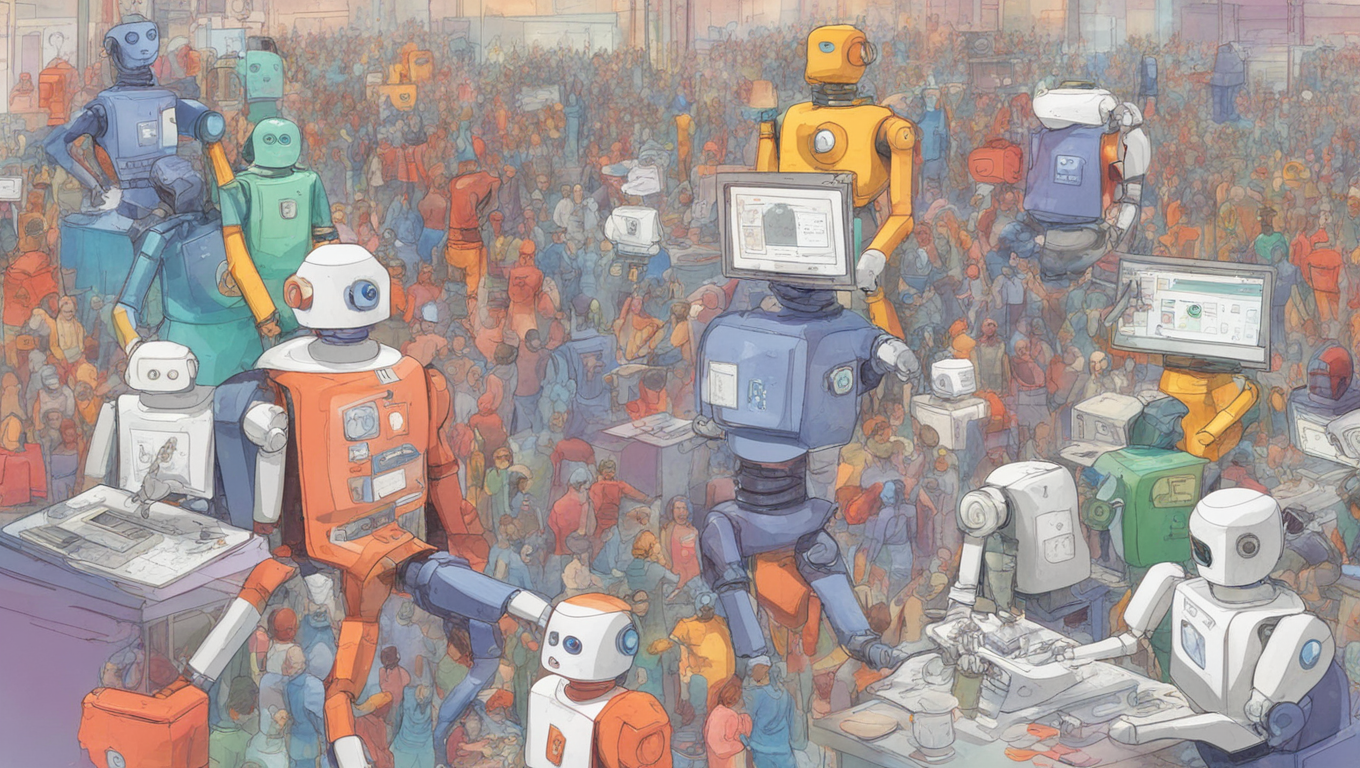Google’s annual developer conference, I/O, is just around the corner, and tech enthusiasts are eagerly awaiting the company’s showcase of its latest advancements in artificial intelligence (AI). As one of the industry’s major events, I/O provides Google with a platform to demonstrate how AI will continue to power its products and services.
This year, CEO Sundar Pichai will take center stage to outline the company’s vision. With Google’s tenth installment of the conference, attendees can expect a gathering of thousands of developers working with Google’s platforms, such as Android and Chrome. While the event is primarily targeted at developers, it often offers a sneak peek into upcoming updates for popular apps and services.
For Google, the stakes are high. With rivals like Microsoft and OpenAI making significant investments in AI, the search giant needs to prove that it remains at the forefront of generative AI technology. One area of focus is the Gemini model, with insiders speculating that Google will showcase new capabilities for this AI model. The aim is to expand AI integration across various Google platforms, including search, photos, videos, Gmail, and other core offerings. Furthermore, Android phone users may soon enjoy enhanced features powered by Gemini, benefiting billions of users around the world.
In recent months, Google has not only been ramping up AI demonstrations but also forging new partnerships to strengthen its AI stack. However, integrating this technology seamlessly into existing businesses and user experiences is a complex endeavor. As much as Google wants to advance AI, it needs to ensure that its revenue, which heavily relies on advertisement displays within search results, remains unaffected. Maintaining search relevance and avoiding automation that disrupts revenue streams will undoubtedly be key priorities for Google.
Yet, in an era of increased regulatory scrutiny for big tech companies, Pichai faces the challenge of convincing developers, media, and investors that AI is progressing safely and in the best interest of users. With concerns about privacy, security, and potential job displacement caused by AI, Google needs to strike the right balance between innovation and oversight.
Regardless of the specific details that emerge from I/O, one thing is certain: AI will remain central to Google’s strategy of empowering users and developers through intelligent technology. As the search giant continues to push the boundaries of AI integration and innovation, it aims to create a future where AI is seamlessly integrated into our daily lives, making tasks more efficient and enhancing our overall user experience. The stage is set, and all eyes are on Google as it unveils its vision for the future of AI at I/O.





Use the share button below if you liked it.